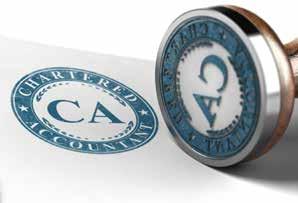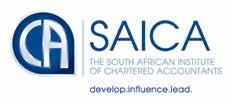
15 minute read
COVID Vaccination and Your Rights
Schools, universities, job hunting and the workplace
The Covid-19 pandemic isn’t going anywhere, and more decisive action is needed to keep South Africa – and the world – safe. One way to do this is for government and private companies to implement mandatory vaccination policies. But how will these policies impact on your Constitutional right to freedom and security? And how do your individual rights measure up when compared with the best interest of the public at large? Can schools and universities make vaccines mandatory? Madelaine Page reports.
Advertisement
How Covid-19 vaccination policies
WILL AFFECT YOU
The South African Constitution makes provision for only one absolute right and that is the right to life. All other rights fall under Section 36 of the Constitution, which means that they may be limited by a generally applied law that is ‘reasonable and justifiable in an open and democratic society based on dignity, freedom and equality’. When we talk about our human rights, the burning question right now is whether government, institutions or private companies can force people to get Covid-19 vaccines. The easy answer is no, but, according to Jahni de Villiers, director of Labour Amplified, it’s more complicated than that. While nobody can force another person to be vaccinated, government and private companies can implement mandatory vaccine policies.
Government Gazette No. 44 700, published on 11 June 2021, gives employers the power to decide whether or not they want to make vaccinations mandatory in their workplace. “This must be done in accordance with the employer’s own risk assessment. It means the employer must identify those employees that must be vaccinated, taking into account the risk of transmission through their work or their risk for severe Covid-19 disease or death due to their age or comorbidities,” says Jahni.
The Government Gazette is free online at www.gpwonline.co.za
Jahni makes it clear that mandatory vaccination to perform certain tasks is not the same as forcing someone to be vaccinated, because employees still have a choice. And employers, when doing the risk assessment, must first try to find other ways to accommodate people who don’t want the vaccine, like moving an employee to a different workstation or a different role with lower risks for contracting the virus. If, however, this can’t

What counts more? ‘Me’ or ‘us’?
Many employers feel that a mandatory vaccination policy is necessary because too many people refuse to be vaccinated voluntarily. This can be because of something called vaccine hesitancy, maybe due to fear, vaccination disinformation or fake news. “That is why decisive action needs to be taken,” Jahni says.

be accommodated, a worker will have to choose: get the jab or find a new job where vaccines aren’t required.
Universities and schools What will happen at schools, universities and colleges going forward? This is a question you might have asked yourself as you enter this new phase of your life, especially if your parents or friends don’t want to be vaccinated. Will students be forced to present a vaccination card in order to enter the study halls or sit for exam sessions?
At the universities in the USA, the same rules apply for international students (including students from South Africa), who are applying from all corners of the world to study at these prestigious institutions.
An education lawyer says as long as universities keep the students’ data secure, there is no legal issue with asking for proof of vaccination. Nobody is forcing anybody; but if you decide to study at any of these universities, you must be vaccinated¹.
Students now have an extra admission criterion to worry about! You still have to stress about whether your grades will be good enough to get accepted to your dream university and whether you will be able to afford the fees. You might, however, now also have to consider what you’ll do if you are asked to present a vaccination card stating that you’re fully vaccinated against Covid-19 as part of your admission requirements. Jahni says that, at this stage, the mandatory vaccination policies allowed by the Occupational Health and Safety Act (No. 85 of 1993) in South Africa only applies to employees. At universities, this means educational staff, like lecturers. “It is unlikely that universities will make vaccinations mandatory for students,” says Jahni.
Within a week of the start of the Department of Basic Education’s massive education sector vaccination roll-out programme, almost 10 000 teachers in Gauteng alone refused to sit for their jabs. Despite this, the Department has as yet not indicated whether it will implement mandatory vaccination for governmentemployed teachers.
“Right now, I am not aware of any private schools making vaccinations mandatory either,” says Jahni. “Given what we have seen of Covid-19, children may pose a larger risk to teachers than vice versa. But it remains to be seen how many teachers decide to get vaccinated, whether the Department of Basic Education or individual private schools decide to make the vaccinations mandatory or not.”
While the Department of Basic Education has said that no learner will be forced to take the Covid-19 vaccine, it has clarified that the vaccine would be made available to all learners eventually. Campaigns will be undertaken ahead of a scholar vaccination roll-out to support learners and their families to make informed choices about their health and wellbeing, considering their right to healthcare and health education.
In the USA, many universities and colleges like Harvard and Columbia have made full vaccination mandatory for students who want to live and study on campus. They argue that it will create a safer environment for in-person teaching and that it is the only way to return campus to ‘normal’ again.

Is there a difference between companies making it mandatory and the government doing the same? Jahni explains: “Yes, there is a difference. Government has the jurisdiction to enforce vaccinations. It can be argued that, except where an individual’s medical conditions would make vaccination life-threatening, rights can be limited in terms of Section 36 as argued above. It would need to be a law of general application. Many
Jahni de Villiers
different jurisdictions have gone this route, including Russia and Pakistan. Employers are limited to making rules for their own workplace and cannot enforce vaccination, but can make it mandatory for certain positions and individuals, in accordance with the employer’s risk assessment.”

If you apply for a job or internship, can a vaccination certificate be a requirement (like having a valid driver’s licence)? Jahni says that if an employer has made vaccination mandatory for a specific job, then it would make sense that an applicant who isn’t vaccinated can’t be appointed in that position. It all depends on the employer’s risk assessment. “Good examples are customer-facing jobs or jobs where social distancing isn’t possible,” she says.
Afriforum says it will defend anybody who decides to exercise their right to freedom and security and not be vaccinated.
“That would be highly irrelevant in this case,” Jahni argues, adding that Afriforum isn’t a registered trade union and has no locus standi in workplace disputes.
This is not the same thing as forcing someone to get vaccinated. Employees have a choice.”
When comparing the rights of one person with the rights of the majority, Jahni explains that rights in the Constitution are not absolute and can always be limited. “In this case, an employee’s rights will not be limited, as they will have freedom of choice – knowing full well what the consequences of the choice would be.”
She is confident that this mandatory direction will withstand legal scrutiny as it was agreed on by government, business, community and labour after long talks, considerations and arguments.
Protection by the Constitution A lawyer and human rights activist disagrees. “Although it may be true that by vaccinating enough people herd immunity is created, there is no guarantee or certainty about the effectiveness of the vaccine, its long-term effects on people, and whether social solidarity trumps individual or patient autonomy. It is still possible to contract Covid-19 after having received a vaccine.”
She believes that the Constitutional rights in South Africa would protect employees against mandatory Covid-19 vaccination. “Is it reasonable to expect that those who do not wish to be vaccinated should sacrifice fundamental human rights in order to accommodate the wishes of another group of people in favour of vaccination? The simple answer is no.”
The government can certainly change its stance if the safety of the population becomes more important than individual autonomy and rights, she writes. “Workplaces and employers will still be in a position to adopt policies in line with employment legislation and the Constitution to make vaccines mandatory for employees if such policies do not infringe the right to bodily and psychological integrity.”
Can I be vaccinated against Covid-19 without permission from my parents? You are only legally considered an adult when you turn 18, but that doesn’t mean you aren’t recognised as a person with rights, agency and autonomy before then! There are laws in place that allow you to make your own medical decisions from quite a young age.
According to the Children’s Act (No. 38 of 2005), children may consent to their own medical treatment provided that they are over the age of 12 years and have the maturity and capacity to understand the implications of a specific treatment, including its risks and benefits.
References
If the Covid-19 vaccine becomes available to your age group and you want to get vaccinated without parental consent, you can approach a doctor, teacher, nurse, social worker or another trusted adult to help you explore your options.

What kind of tomorrow do you want to shape? A connected world, working together to prosper and thrive? By Karin Jacobsen


BECOME A DIFFERENCE MAKER: Become a Chartered Accountant
If you want an exciting career where you can contribute to something bigger than yourself, becoming a Chartered Accountant (CA[SA]) puts you in a position to make a real difference. Giving you the skills and perspectives to build the tomorrow you want. How?
Here are some compelling reasons to consider this as YOUR career path: The CA(SA) designation is your passport to: • Changing the world – As difference makers, CAs(SA) have the skills, knowledge and insight to drive business decisions that help create better societies, economies and communities –
for a more prosperous future for us all. • Being the head and heart of a business – CAs(SA) are not only able to run companies (74% of the JSE’s Top 200 company chief financial officers (CFOs) and almost a third of the JSE’s top 40
CEOs are CAs[SA]), they’re able to start their own companies and be their own boss too. And that means you can make your passion a reality. • A highly promising and varied career – as a CA(SA), you can work in just about any industry of choice – in all fields of business and finance and, more specifically, in auditing/assurance, tax, financial management, information technology, management accounting, forensic accounting and insolvency – as well as academia, the public and private
sector, NGOs and more. • An internationally recognised career. • Improving your chances of being headhunted by top employers throughout your career. • Holding prestigious positions in the private and public sector and in academia. • Contribute to making South Africa a
better place through giving back in a number of different ways.
How do you become a CA(SA)? The minimum requirements for university admission to a CA-stream BCom degree are a Level 5 pass in Mathematics, together with a National Senior Certificate with matriculation exemption. You need to take pure Mathematics (not Mathematical Literacy) as a subject and you need to pass it well. That means achieving 60% or more.
You also need a good grounding in English, as it will help you to understand the concepts you will study.
Many learners believe that having accounting as a school subject is compulsory to study towards your CA(SA). While it can help you in your studies towards your degree, it isn’t necessary.

Now let’s talk universities… If you want to be a CA(SA), you need to ensure that the university you’re applying to offers a BCom qualification/ programme that is accredited by the South African Institute of Chartered Accountants (SAICA). A full list of the universities that offer SAICA-accredited BCom Accountancy programmes can be found at www.saica.org.za.
Once you’ve completed the three-year degree, you’ll need to obtain a Certificate in the Theory of Accounting (CTA or honours equivalent). This is a postgraduate course – your fourth year at university – and focuses on Accounting, Auditing, Taxation and Financial Management. It takes a minimum of one year to complete and must be completed at a SAICAaccredited university.
Once you have your BCom, it’s time to get real-world working experience. Following your CTA, you’ll enter into a three-year training contract with a SAICAregistered training office.
During your training, you must pass two Qualifying Examinations: the Initial Test of Competence (ITC) and the Assessment of Professional Competence (APC).
If you pass everything first time, the entire qualification process takes about seven years from the time you enter university. Now that may sound like a long time, but it’s worth it.
Exceptional CAs(SA) like Zanele Maduna have escaped the poverty cycle through SAICA’s Thuthuka Bursary, which helps academically talented but financially disadvantaged African and Coloured learners pursue their dreams of becoming CAs(SA)

About SAICA
The South African Institute of Chartered Accountants (SAICA) is the leading accountancy body in South Africa and one of the prominent institutes globally. SAICA is at the forefront of developing, influencing and leading the highest standards of ethics, education and professional excellence in the delivery of quality accountancy skills. This is achieved by safeguarding the professional standards of the designations on offer; advancing and maintaining the relevance of the profession; and by regulating the members’ and associates’ professional conduct against the SAICA Code. For more information, visit www.saica.org.za.

Where can you make a difference as a qualified CA(SA)? The CA(SA) journey equips you with exceptional commercial acumen, professional scepticism, critical thinking, and the ethical framework you need to shape your world.
And that means that you don’t just have to do traditional accounting work. Studying to become a CA(SA) opens up a LOT of doors here in South Africa and internationally, including: • Auditing: CAs(SA) generally audit financial statements and provide tax or financial planning advice. They also offer consulting and advisory services in a variety of fields such as corporate finance, management accounting, information technology, and general financial and business management. • Business: CAs(SA) can specialise in management accounting, financial management, taxation, corporate governance, internal auditing and many other fields. Many lead major companies as chief executive officers, chief financial officers and managing directors. • Government and the public sector: CAs(SA) hold top-notch positions (like the Auditor-
General or Head of National Treasury) and are widely recognised for effective financial management, leadership and providing services to their country. • Academia: Become a lecturer and develop the next generation of CAs(SA) by lecturing
at universities and providing training through professional programmes. • Entrepreneurship: Follow the entrepreneurial route and become your own boss! The bottom line is: if you choose well and work smart, you too can be a difference maker because you’re a CA(SA)!
Today and tomorrow
Responsible leadership is a keystone of the SAICA philosophy today. The Institute speaks with a single voice on behalf of accountants, involves all stakeholders in decisions and maintains exceptional professional standards. In a changing world with new demands imposed by politics, new media and ways of communicating, climate change and changing corporate structures, SAICA stresses the skills and abilities demanded of the modern accountancy and management professional. However, through SAICA’s vision of responsible leadership, we will continue our efforts to elevate the value and impact of SAICA in transforming society and empowering others to create value. The ability to create a profession of national value will ensure our history is kept, states Freeman Nomvalo, CEO of SAICA.
SAICA’s Mission
Our purpose is to develop responsible leaders for a changing future, while our main objectives are to promote the interests of SAICA members and support the development of the South African economy and society.
SAICA’s strategy supports the achievement of its purpose and has six pillars: 1. Continued relevance of the accountancy profession. 2. Delivering better member value and offerings that will see our members remain relevant and in high demand in the marketplace. 3. Growth and transformation of the accountancy profession in terms of race and gender and in line with the overarching national agenda. 4. Growing the Institute’s thought leadership standing, both locally and internationally, through technical excellence and a more robust stakeholder engagement focus. 5. Making a quantifiable social contribution through nationbuilding initiatives, thereby contributing to the United Nations’
Sustainable Development Goals. 6. Sustainability of the profession through the attraction and retention of new members.

In addition to academic support, SAICA’s Thuthuka programme also guides talented learners with life skills such as setting goals, building their confidence and counselling them through hurdles at home or school










